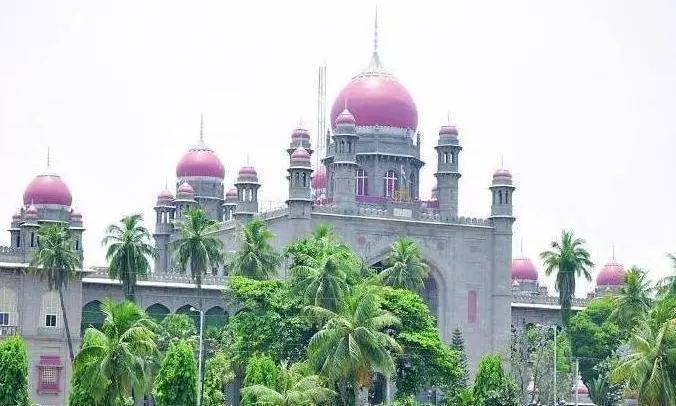Plea Challenges Inaction Against 13 Errant Wine Shops

Hyderabad: Justice T. Madhavi Devi of the Telangana High Court took on file a writ plea challenging the consumer affairs, food and civil supplies department and other authorities for not initiating action against 13 wine shops for allegedly reusing single-use plastic water bottles. The judge was hearing a writ plea filed by the Telangana Water Plants Owners Association (TWPOA). The petitioner alleged that despite several representations, the respondent authorities failed to take any action against the wine shops for alleged reuse of plastic bottles meant for single use. The petitioner also alleged violation of several provisions of the Constitution. The judge directed the government pleader to get instructions and posted the matter for further hearing.
HC to hear PIL seeking sweeping reforms in handling of rape cases
A two-judge panel of the Telangana High Court is set to hear a PIL calling for sweeping reforms in handling rape cases to ensure justice and comprehensive support for victims. The public interest litigation was filed by Dr K.A. Paul, party in person, requesting a series of mandates aimed at transforming the judicial and administrative response to rape cases. The petitioner sought that 50 per cent of the convicted rapist’s property be allocated to the victim as compensation within three months of conviction, as per Section 395 of the Bharatiya Nagarik Suraksha Sanhita, 2023 (BNSS). Additionally, the petitioner sought immediate mandate for swift registration of FIRs in rape cases, and completion of investigations within 30 days and conclusion of trial within 90 days. It calls for establishment of district sessions courts exclusively for rape cases, citing Section 173 of the BNSS. The petitioner further urged the state government to submit a detailed report on the backlog of pending rape cases and steps taken to expedite the process, referencing Section 193 of the BNSS. A directive was also sought to the National Commission for Women (NCW) for investigating systemic issues contributing to rising crimes against women in Telangana, with the aim of recommending meaningful reforms. The petition called on the state to ensure secure accommodation for rape survivors. If government facilities were insufficient, he suggested the Charity City near Sangareddy, which offers 1,200 acres and 300 rooms, as a temporary shelter with 24/7 care and counselling. The party-in-person also wanted a mandate to allocate one per cent of taxpayer revenue toward establishing district centres for women’s empowerment and educational programs for young men, promoting respect for women. He also demanded that media outlets protect rape victims’ identities to avoid stigma and reduce the risk of suicides. The panel remarked the importance of the Lalita Kumari judgment, underscoring the state’s duty to promptly register FIRs in heinous crimes like rape. The government pleader requested time to file a response and accordingly, the panel posted the matter after three weeks.
3,000 lawyers await enrolment, HC informed
Justice B. Vijaysen Reddy of the Telangana High Court took on file a writ plea filed by two law graduates seeking legal intervention against the Bar Council of Telangana for delaying their enrolment as advocates. The judge was dealing with a writ plea filed by Pally Vinod Reddy and Nallapu Manideep. Counsel for the petitioners contended that the Bar Council’s refusal to enroll candidates born before 1999 was discriminatory and violates constitutional rights. The petitioners claimed that their applications are pending solely due to a three-year education gap. They alleged that the delay was unjustified and unconstitutional, particularly because the “first come, first serve” rule was not being duly followed. The standing counsel for the Bar Council argued that there is a backlog of approximately 3,000 applications and clarified that enrolment was being processed as quickly as possible. The standing counsel also stated that candidates with continuous education do not need to submit additional affidavits and that those with education gaps will be enrolled in order of priority. The petitioners contended that denying enrollment based on an educational gap violates Article 19 of the Constitution, which protects the fundamental right to practice a profession. Counsel for the petitioners sought immediate relief from the judge, requesting that the petitioners be enrolled within a week. However, the standing counsel for the Bar Council argued that the timeline of one week was not feasible. When the judge inquired about the timeline for enrollment, the respondents requested time to obtain instructions. After hearing both sides, the judge posted the matter for further adjudication.

